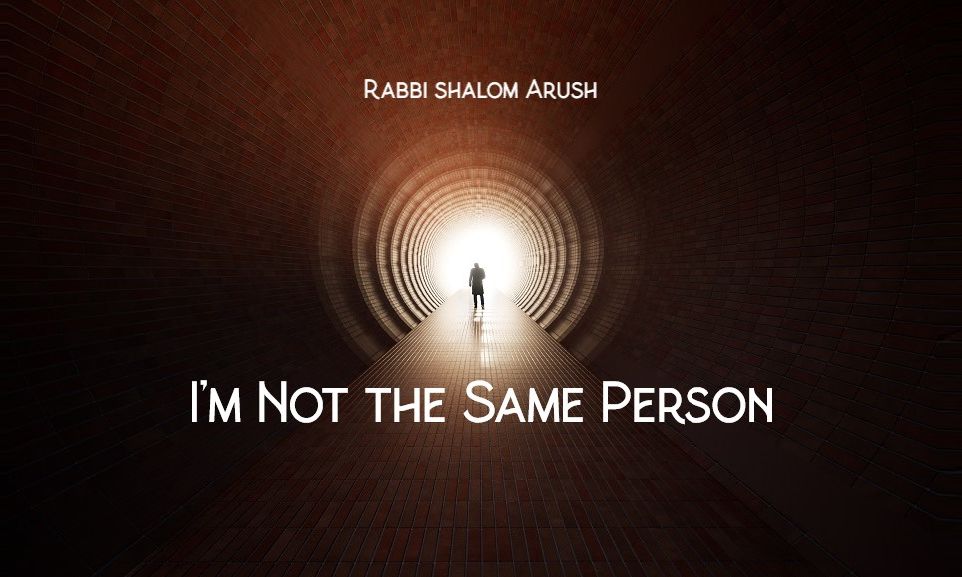
I’m Not the Same Person
Tired of facing another Yom Kippur of asking forgiveness for the same offenses that you’ve mentioned year after year? Read Rabbi Arush’s advice about how to make this Yom Kippur different!

No Couple is a Failure
When the husband and wife finished voicing all their complaints about each other, they thought that the rabbi would sigh deeply and be in despair in face of the problems and many differences and the strife in the relationship. They had tried making up and asking for forgiveness, but then the same problems and causes for fights would reemerge. They themselves have given up long ago on their marriage and they thought that the Rabbi would just give them the go-ahead to break it up.
They were amazed when they saw the rabbi sitting there, relaxed and smiling, as if he didn’t see any problem or difficulty. They stared at him, perplexed, and waited to hear what he had to say.
“Look, dear couple,” said the rabbi finally, “you are a totally normal couple. Every couple has differences of opinion. There are arguments and often there are fights. And it is true that one must ask for forgiveness in specific instances, but your deep solution – and that of every couple – is simply to devote time every single day to talk with each other…
“Only talk and conversation connect and join people. Only during the daily, open conversation will you be able to understand the spouse better, explain yourself better, and even understand yourself better. You will discover the endless ways to bridge all the gaps and find your own special ways to get around every problem and discord and deal with it. That’s all. It’s that simple.”
Move Ahead
We are now on the day before Shabbat Shuva, in the middle of Aseret Yemei Teshuva (The Ten Days of repentance), and we’re almost on the eve of Yom Kippur, the holy day on which we repent with all our hearts and are commanded to confess ten times and pray for forgiveness. And indeed, asking for forgiveness on Yom Kippur is extremely important, and Rabbi Nachman said that the main thing on Yom Kippur is saying “Slach na,” “please forgive.”
But many of us, if not all of us, see that every year we repeat the same transgressions, and the same problems come up. Does this seem right, that every year we ask to be forgiven and then repeat those exact mistakes again?!
Of course not!
Teshuva is supposed to change us. We are supposed to have a sense of elevation and of moving forward. At least from one year to the next. The days of teshuva are days of taking account, when we are supposed to see that with all the transgressions and problems, we are really not in the same place we were last year. We have advanced!
No Jew is a Failure
Our connection with the Creator of the World is like that between two spouses: “ani ledodi vedodi li” (My beloved is mine and I am his). And just like between husband and wife, so too between us and our Father in Heaven, the way to truly rectify and improve the situation is to have a personal talk every day, every day.
On the one hand, this is really easy and simple. On the other hand, it is very powerful, and really changes a person internally. Ask whoever has performed hitbodedut for years, and he will tell you he sees a change. He is advancing. He is rising to higher levels. He is not standing in one place! And that is unequivocal. On the third hand, there is no other way! There is no way to get around it. There is no substitute for a personal conversation with the Creator!
Moshe Rabbeinu’s Advice
And the main point of the personal conversation and the prayers is not to ask for one’s material needs, but to talk about and request that in itself: our connection with the Creator, our observance of the Torah, how to come closer to Him.
We will bring here some inspiring words from Rabbi Natan about the influence of tefilla (prayer) on our relationship with Torah. They are very startling in their novelty and are connected to the weekly parasha, Parashat Ha’azinu.
Moshe gave the Jewish people one last sermon before he died. But his intention, of course, was to bring them to keep the Torah and implement it in their lives. He pleads with them: “Listen, heavens, and hear, earth.” And the main thing is the Jewish people who are listening will hear and accept. And therefore, he continues and asks: “May my teaching pour down like rain, let my speech fall like dew” – in other words, may my words be accepted, and may you really live and implement the Torah that I am leaving you.
And then he includes a piece of advice. What is it? “As I call out the name of Hashem”.
Rabbi Natan explains: To “call out the name of Hashem” means to pray to Hashem that one should be able to implement the Torah! And that is the way the words will enter our hearts, in other words, that we will live and truly observe the Torah.
The Bad Turns Into Good
It is known that there is a disagreement between Chassidic Jews and Lithuanian Jews regarding whether the main thing in life is Torah or tefilla.
But Rabbi Natan explains that that is not a question at all. There are no primary and secondary things – the two things go hand in hand, because tefilla and Torah are not two separate things, rather they are one, and dependent on each other.
Whoever prays without learning – what is he praying for, for his material needs? For his temporary life?! Is that the purpose and the completion of man?! Of course not!
In Otzar Hayira it says that when a person’s main prayers are about the material, it means that the Sitra Achra (the “other side” – evil) has taken hold of his prayers. In other words, that the person is taking all this holy thing called tefilla and aiming it in the wrong direction!
But for someone who learns without praying – that is dangerous. Because he can reach a situation where “His wisdom is greater than his deeds” (Perkei Avot 3:11) – he knows a lot but is far from fearing G-d, and his knowledge is worthless if he is not doing what he is learning, because “He who learns Torah for ulterior motives, it becomes poison for him.” And, “He who studies in order not to do would have been better off if the afterbirth he was in was twisted around and he never would have entered the world.”
So, we see that Torah alone is not good, and tefilla alone is not good.
Therefore, Rabbi Nachman of Tcherin, the author of Otzar Hayira and Rabbi Natan’s disciple, explains, based on the foundation laid by Rabbeinu Hakadosh and Rabbi Natan his disciple, that true service of Hashem is when there is complete union between Torah and tefilla.
This means that when a person prays, he is praying only that he should be able to uphold the Torah. And when he learns – his entire intention is that he will be able to get up afterwards and pray, asking “to learn and to teach, to observe, to do and to implement” everything he learned perfectly.
Otzar Hayira says that only when the tefilla and the Torah are completely united – only then do all the evildoers break up, in other words, the power of the klipa leaves the person, and all the evil inside him turns into good!
Making a Change
Especially in our generation, in Acharit Hayamim (End of Days), when we are looking forward to the complete Geula (salvation) and it depends only on our complete teshuva, the deepest ways of complete rectification of man are being revealed, and Rabbi Nachman’s holy directive is spreading throughout the Jewish People: “To make tefillot out of the Torahs (teachings)”. Because the main intention and goal of the song of Ha’azinu is to give the Jewish People the ways to implement the Torah at the End of Days, at the end of the exile, in a generation of difficulty and of hiding of His Face.
Therefore, dear Jews, alongside the Selichot and the pleadings for forgiveness on holy Yom Kippur, during the Ten Days of Repentance we must find and build the infrastructure for teshuva and true and deep rectification for the whole year.
And that means to begin to engage more and more in Rabbi Nachman’s way of hitbodedut, and, mainly, mainly: the hitbodedut of cheshbon nefesh – taking account of one’s life, tikkun (rectification), teshuva, and tefilla for the kiyum (implementation) of Torah, and for the tikkun of man.
Because remember well: True hitbodedut is the only thing that can change a person. Because he is working on himself daily and rectifying himself all year round. For us to stand before Hashem on Yom Kippur and show Him that we’re doing something fundamental and real, enabling us to promise that next year we will really become different people – we must accept upon ourselves hitbodedut, in which we pray for the kiyum of the Torah.
I have explained all this at length in my books In Forest Fields and A New Light, and in them we brought all the advice and instructions and inspirations how to use this wonderful and holy piece of advice to make a real change and a deep revolution in one’s life. We will learn and implement the Torah so that we can stand next year on the night of Yom Kippur and feel that we are truly different people, as the Rambam writes in his Hilchot Teshuva: “I am a different person, and I am not the same person who did these deeds.” Amen, and may it be Hashem’s will.


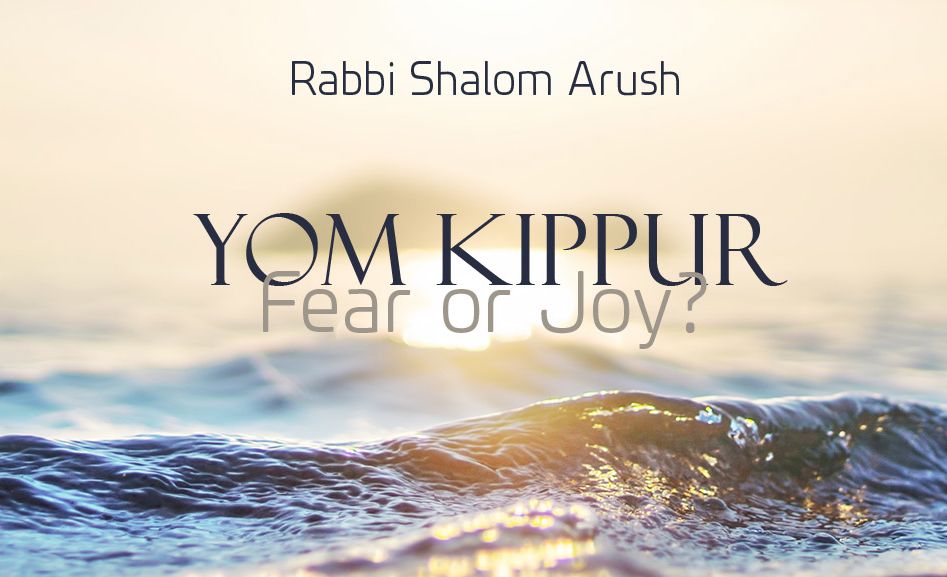
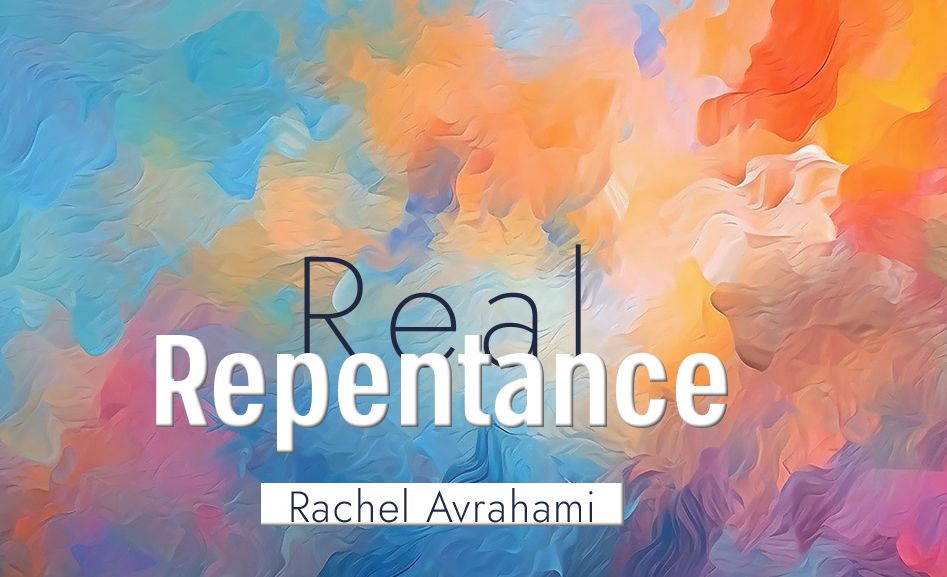
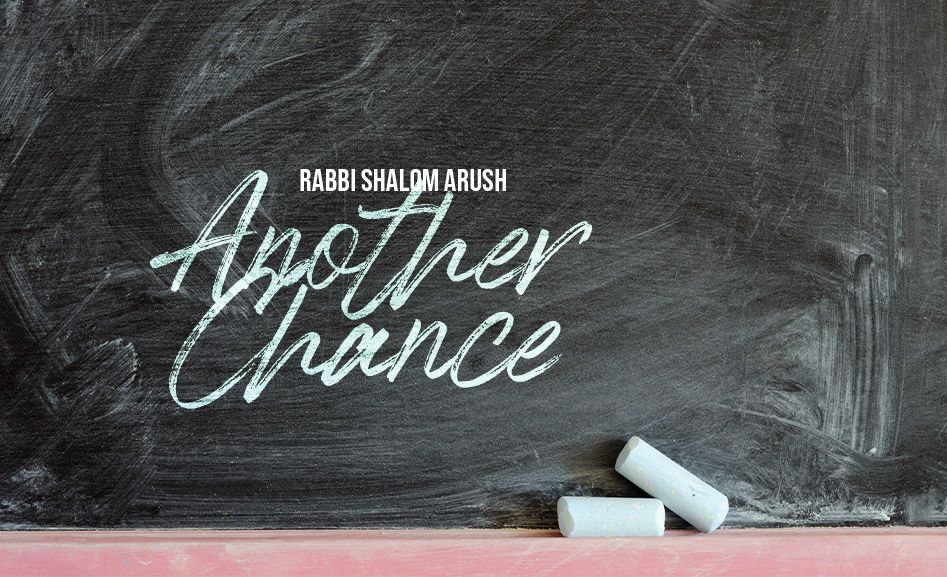
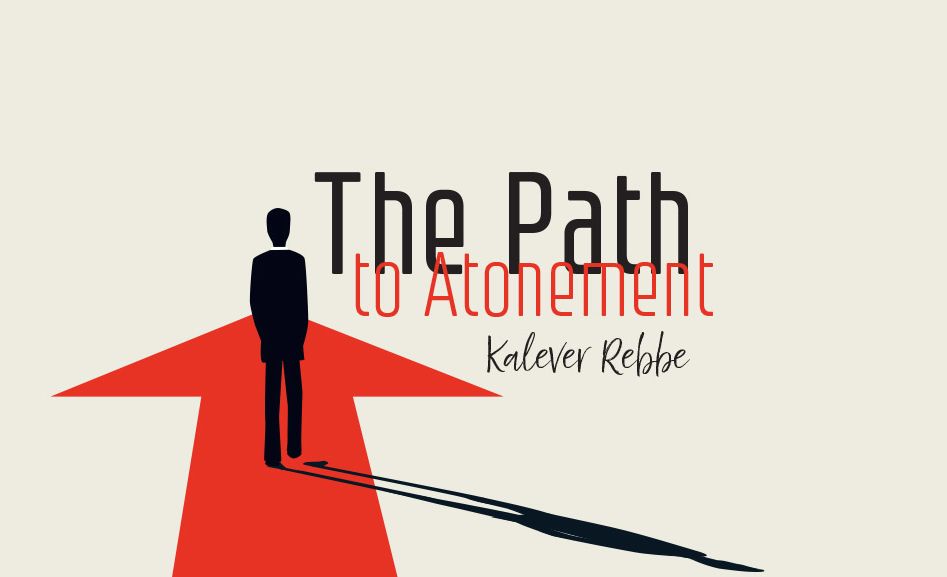





Tell us what you think!
Thank you for your comment!
It will be published after approval by the Editor.